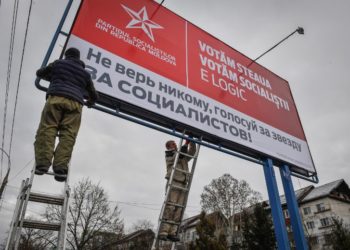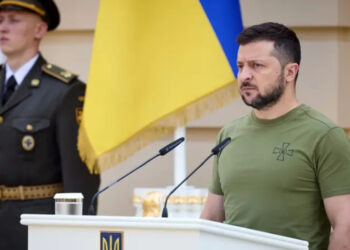Russia’s leading LGBTQ rights group has vowed to continue its work in the face of pressure by authorities that has complicated its already difficult task in a country with a dismal record on sexual minority rights.
Since 2006, the LGBT-Network rights group has supported sexual minorities in Russia, especially in the country’s republic of Chechnya, where officials have been accused of jailing and torturing gay men in secret prisons.
Last week, however, the group was branded a “foreign agent”.
“This was of course done to make our work more difficult,” said Svetlana Zakharova, director of the Sfera fund underpinning the LGBT Network.
“This work was always difficult, but we will continue it,” she said. “We will not drop it.”
The move against the Saint Petersburg-based group came against a background of growing repression against independent organizations perceived as breaking with the line of President Vladimir Putin, who casts himself as a defender of traditional values.
The designation forces the LGBT-Network to publish its “foreign agent” status — a term with Soviet-era undertones — on all of its content including on social media and to comply with tedious administrative procedures under the threat of criminal penalties.
But in an interview on a recent afternoon at the group’s offices in Russia’s second city, Zakharova said she was more worried for LGBTQ Russians.
“Now some people may not dare to seek psychological help from the organization,” the 34-year-old told AFP.
‘Prefer to work’
Homophobia in Russia has been rising since 2013, when the country outlawed so-called “gay propaganda” for minors in controversial legislation that has served as a pretext to ban pride parades and flags.
Last year, Russia added a phrase to its constitution saying that marriage is the union of a man and a woman.
A poll by Russia’s leading independent Levada Center pollster last month saw 69 percent of respondents say they do not believe adults have the right to enter same-sex relationships.
But LGBTQ people in Russia have it worst in the Caucasus republic of Chechnya, where its strongman leader Ramzan Kadyrov has been accused of persecuting sexual minorities.
In 2017, the independent Novaya Gazeta newspaper and several rights groups reported that gay men were arrested and sometimes tortured and murdered by police in the predominantly Muslim region.
The region was where LGBT-Network made its name, in particular through its work helping gay Chechens escape to other regions in Russia or outside of the country.
Amnesty International last week denounced the move by the authorities to brand the group a “foreign agent” as “beyond shameful”.
LGBT-Network, though, is used to hostility from the authorities. Zakharova, for instance, only opens the office door to visitors after phone verification.
At its offices, where the walls are adorned with rainbow flags, several young activists on the recent afternoon were working away as if the “foreign agent” tag had not been applied.
“You can either be afraid or continue working,” said Nina Popugayeva, 23, who sported a rainbow mug on her desk.
“I prefer to work.”
























